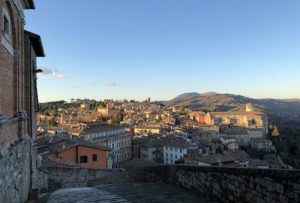16 September 2021 – Washington, DC
During a visit to the Italian Embassy in Washington, DC on Thursday, Dr. Anthony Fauci stated that, “Italy has become an example to the world”. Fauci went on to compliment and promote Italy for its management of the pandemic stating, “Italy is doing well, better than the USA, particularly with the percentage of fully vaccinated people over 12 years, almost 75%, against 54% in the United States (63% with at least one dose). Italian ambassador Mariangela Zappia, thanked Fauci for his comments and his appreciation for Italy’s effective policies in response to the pandemic.
Statistically, Italy is among the top 10 nations in terms of managing COVID-19 and has set a goal of 80% of its population be vaccinated with the first dose by the end of September, and to eventually, like Portugal has done so in recent days, achieve an over 80% fully-vaccinated level and declare victory over the pandemic in the coming months.
Source: Covid, Fauci promuove l’Italia: “Meglio degli Usa, è diventata esempio nel mondo” – Rai News


